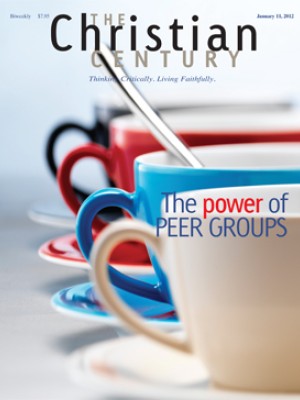Public image worries SBC, pleases United Methodists
A task force that studied whether the nationwide Southern Baptist Convention should drop its regional name tag may have encouraged advocates for change after its own polling agency showed high negative responses to "Southern Baptist." Proponents for a change have reacted with reserve. The SBC annual meetings or top officials have rejected moves to rename the convention eight times since 1965.
Task force chairman Jimmy Draper said in a statement December 7 that its recommendations, which were not made public, will "greatly strengthen our ability to reach more people with the gospel." The report goes before the Nashville-based SBC Executive Committee in February.
Read our latest issue or browse back issues.
The SBC LifeWay Research study contained mixed news. About 53 percent of Americans had a favorable impression of Southern Baptists, but 40 percent had an unfavorable view. More than a third of respondents said an SBC church "was not for them."
Half of young adults between 18 and 29 said they would react negatively if they were told a church they were thinking of attending was Southern Baptist. Of adults with a college degree, in the same hypothetical situation, 52 percent said it would impact them negatively, according to the study.
"The negative impact numbers concern me most," said Ed Stetzer, president of LifeWay Research. "Knowing a church is SBC would make four out of ten Americans less likely to visit and join—and many of those are unchurched."
Meanwhile, Methodist communications officials, also based in Nashville, took heart from the LifeWay findings. About 62 percent of U.S. adults had favorable views of United Methodists, which barely topped the 59 percent favorable impressions made by Catholics. The United Methodists received the lowest unfavorable rating—23 percent—of five religious groups.
By comparison to the three Christian groups, Mormons and Muslims had the least favorable views (37 percent and 29 percent respectively). The online survey, taken in September, had responses from more than 2,000 adults.
The United Methodist Church, the second largest Protestant denomination, has seen a steady drop in U.S. membership for 50 years, but the nation's largest Protestant denomination, the SBC, has experienced a decline in baptisms and other growth measurements mostly in the past decade.
Because the UMC has a gradually aging clergy and membership, church leaders have sought to attract young adults. But the survey showed that of the five religious groups in the study, adults aged 18 to 29 and 30 to 49, are more likely (20 percent) to have a "somewhat unfavorable" opinion than those 50 years and older (13 percent).
The Methodists' communications arm began an advertising campaign in 2001 with the slogan "Open hearts. Open minds. Open doors" to increase awareness of the denomination's basic beliefs. That campaign evolved in 2009 into another one called "Rethink Church," aimed at 18- to 34-year-olds and emphasizing service opportunities, from advancing literacy to feeding the poor.
Larry Hollon, chief executive of United Methodist Communications, said the LifeWay findings underscore the need to persuade audiences that faith can be relevant to their lives. "We have found that connecting seekers with the church through mission and outreach opportunities can have profound effects," he told United Methodist News Service.
Hollon cited two examples: One was a recent social service event in El Paso, Texas, at which 82 percent of the volunteers were not part of the local church and 40 percent were in the 18-to-34 group. Another was in Topeka, Kansas, where a project sponsored by 20 Methodist churches drew nearly 1,000 volunteers for outdoor cleanup work, of which 200 had no church links.






